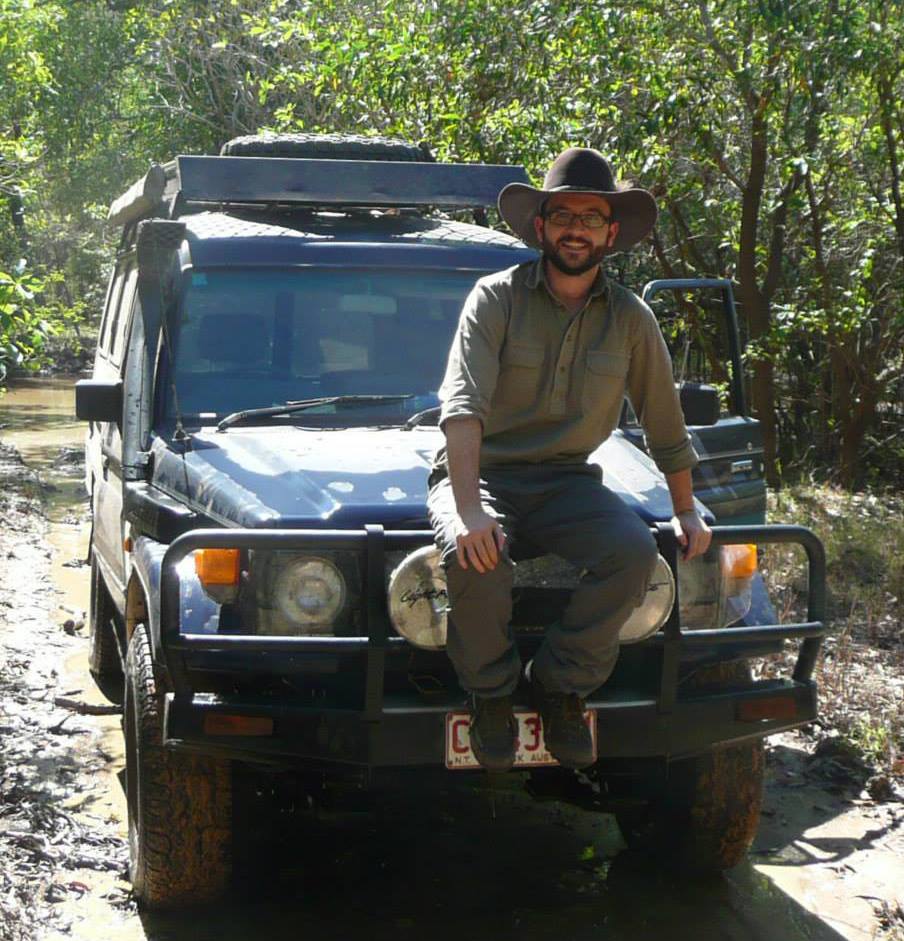What can you do with an Honours degree from the Faculty of Humanities and Social Sciences?
Our graduates end up all over the globe undertaking PhD's, working for governments, the private sector, non-for-profits, galleries, they go on to do teaching, researching, being project managers and undertaking many other roles! Having your Honours gives you a step up from the competition and opens you up to a world of opportunities.
Check out some of our graduates and be inspired to undertake 'One year. One extraordinary research experience'.
4. Andrew Fahey, BA (Hons) in Anthropology
 What was your Honours degree in?
What was your Honours degree in?
I completed my Honours degree in Anthropology through the school of Social Sciences. In my thesis I focussed on a single aspect of social theory relating to how anthropologists conceptualise human collectives (groups, tribes, communities etc.), with a specific focus on the history of this practice in the anthropology of Aboriginal Australia.
What was the best thing about your Honours program at UQ?
I found studying in the Honours program rewarding in a number of ways: having the freedom to explore a topic of interest deeply and in a more self-directed way, the higher-level coursework, and the challenge of writing an extended, focussed piece of research. What I enjoyed the most, however, was the exposure to a range of other related fields, ideas, and thinkers in the form of my conversations with fellow Honours students and my supervisor. Mixing with others who are likeminded and intellectually driven was a real pleasure and a fantastic learning opportunity.
How did your study help you to get to your current role, and what does your current role involve?
Through my study in the Honours program I was able to move into my current position as an Anthropologist with The Central Land Council based in the small town of Tennant Creek in the Northern Territory. My role is quite varied and draws on a number of areas of anthropology. Much of my time is devoted to conducting research (through archival sources and consultations) into traditional ownership of portions of Aboriginal land, conducting consultations with Traditional Owners about proposed projects or activities on their land, recording and protecting sacred sites, taking and updating genealogies, assisting with land management activities (such as controlled burns) and liaising with a range of other parties who want to access Aboriginal land (such as pastoralists and mining companies). My job involves significant time spent in remote parts of central Australia with Traditional Owners and is probably best summed up as something of an experiential course in Aboriginal languages and cross-cultural philosophies mixed with an adventure travel experience. As my job requires me to be flexible, independent, critically minded, accurate and thoughtful in conducting my research, Honours was the best preparation for this role. Unsurprisingly it is also a required qualification for this work.
What did your study lead to?
For any students currently enrolled – or considering enrolling in an Honours degree in Anthropology I would strongly encourage you to explore parts of the discipline that you may not have considered or been exposed to in your undergraduate work. As much as possible I would also strongly encourage you to get back to the basics and read the classics. They can be a bit tedious at times, but having them under your belt will give you a great grounding to engage at much more sophisticated level with debates in the discipline. Even if you don’t go on to further post-graduate study, you should always keep up with current anthropology and work towards contributing original research where you can.
What advice would you give to students in the same discipline you studied?
More generally I would encourage current and prospective Honours students to choose a topic that you are both interested in and that will challenge and extend you in productive ways. Also think carefully about a topic that is manageable methodologically (i.e. not involving complex fieldwork, access to sensitive or restricted sources, or enormous amounts of data etc.). Honours is a difficult program with lots of deadlines and requiring devoted attention for sustained periods of time. Don’t kill yourself trying to solve all the world’s problems, aim for something achievable and give it a thorough and thoughtful treatment in your thesis.
What challenges did you came across in your degree, and how did you overcome them?
Balancing full-time work with part-time Honours study was a big challenge for me, but with the support of my supervisor, the Honours coordinator and my employer I was able to manage the two. Life is going to intrude on your pristine intellectual utopia, so be ready for it and don’t be afraid to ask for help when you need it. The program is there to train, challenge and nurture you – so be your own advocate. Talk with your supervisor and the Honours coordinator about making the program work for you in a way that best fits your aspirations, needs and circumstances.
Any final tips for Honours students?
Lastly make sure you engage broadly with your fellow students, your supervisor, and other academic staff every chance you get. Talk to them about your topic, your interests and ask them about their research. You won’t ever regret those conversations, as they are often a regular source of insight, inspiration and new leads to follow up.
